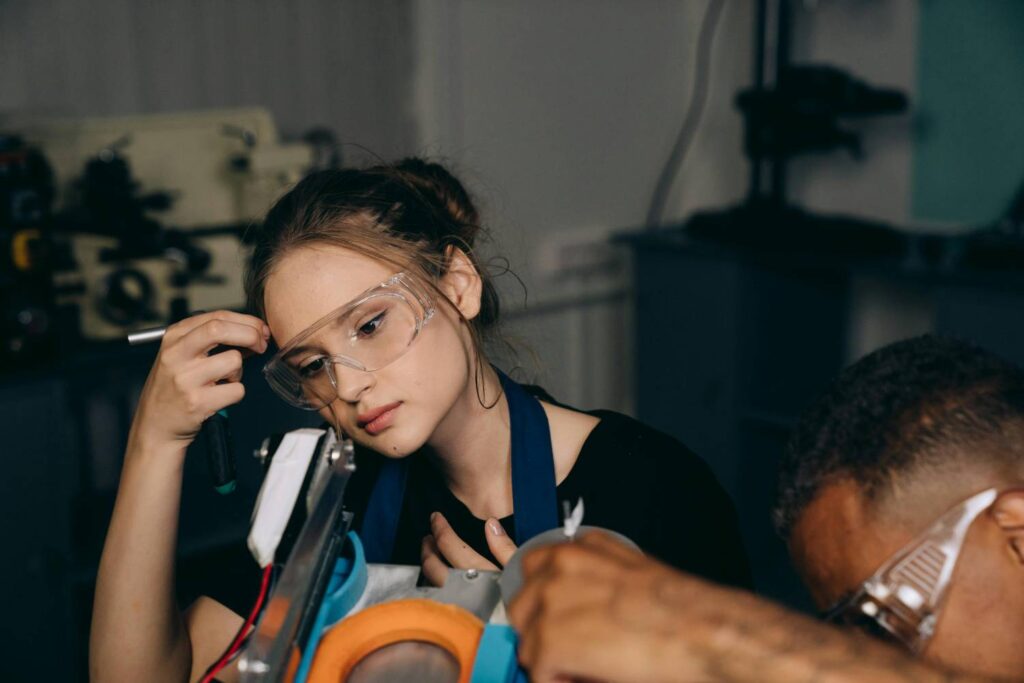In the modern economy, manufacturing stands as a pillar of economic growth, industrial progress, and technological innovation. At the core of this progress are mechanical engineers—experts who apply principles of science, engineering, and mathematics to create smarter systems, optimize production, and reduce costs. From 3D printing to smart manufacturing, mechanical engineers are shaping the future of the secondary sector of the economy by developing scalable, efficient, and sustainable processes that meet evolving market demands.
Design, Optimization, and Manufacturing Efficiency
Mechanical engineers play a pivotal role in product and process development. Through design, systems engineering, and data-driven optimization, they help companies enhance productivity, reduce waste, and streamline workflows.
- Computer-Aided Design (CAD) and Computer-Aided Manufacturing (CAM) tools allow engineers to build and test digital models of components before physical production, saving both time and cost.
- By analyzing the bill of materials, engineers can simplify inventory control, reduce excess raw materials, and minimize warehouse space.
- Integration with a Manufacturing Execution System (MES) and master production schedule ensures better coordination between design and production phases.
This level of precision drives lean manufacturing, improves asset utilization, and maximizes return on investment across the manufacturing lifecycle.
Exploring Advanced Materials and Emerging Technologies
The incorporation of advanced manufacturing practices involves leveraging new materials and techniques. Mechanical engineers constantly research and apply innovative materials—such as high-strength steel, aluminium, natural rubber, and composites—to improve the durability, strength, and efficiency of manufactured goods.
- 3D printing, or additive manufacturing, allows engineers to experiment with metal, plastic, and resin components while reducing waste and material usage.
- This flexibility is ideal for batch production, mass production, and prototype testing—enabling customized solutions for sectors ranging from health to automotive and agriculture.
- Techniques like metal sintering and digital prototyping reduce reliance on traditional fuel-intensive processes, cutting down on environmental risk and energy consumption.
Mechanical engineers are at the forefront of emerging technologies, using tools such as artificial intelligence and real-time analytics to inform decision-making and anticipate supply chain disruptions.
Sustainable Manufacturing and Environmental Impact
With a growing focus on climate responsibility, mechanical engineers are leading efforts to reduce emissions, optimize fuel use, and transition to renewable energy sources. These initiatives align with national goals supported by organizations like the National Institute of Standards and Technology and Manufacturing USA.
- Lean manufacturing principles help reduce energy consumption, raw material usage, and production overhead.
- Additive manufacturing techniques reduce material waste by building layer-by-layer and eliminating excess.
- Engineers also develop systems for aquaculture, textile, and construction industries that reduce reliance on petroleum-based materials and promote sustainable commerce.
This commitment to sustainability ensures compliance with environmental regulations, improves brand reputation, and supports long-term economic resilience.
Leadership, Education, and Workforce Development
Mechanical engineers not only shape machines and processes—they also help build the future workforce through education, mentorship, and research and development. Their contributions influence both company strategy and community growth.
- They often collaborate with academic institutions and national initiatives like the National Science Foundation to drive innovation.
- With a strong foundation in statistics, software, and engineering principles, they provide technical leadership within organizations.
- Their role in workforce development includes training new talent, ensuring employment stability, and supporting entrepreneurship in advanced manufacturing.
These efforts help sustain a strong employment base in manufacturing while equipping future engineers to address tomorrow’s challenges.
Partner with RapidPro Manufacturing to Drive Innovation
At RapidPro Manufacturing, we understand the critical role mechanical engineers play in turning bold ideas into practical, market-ready solutions. Our team works at the intersection of innovation, technology, and manufacturing engineering to deliver exceptional results—on time and within budget.
From prototyping and advanced materials to smart factory solutions and mass production, we help companies adapt and thrive in a changing global landscape.
Contact RapidPro Manufacturing today to discover how we can power your next breakthrough.

